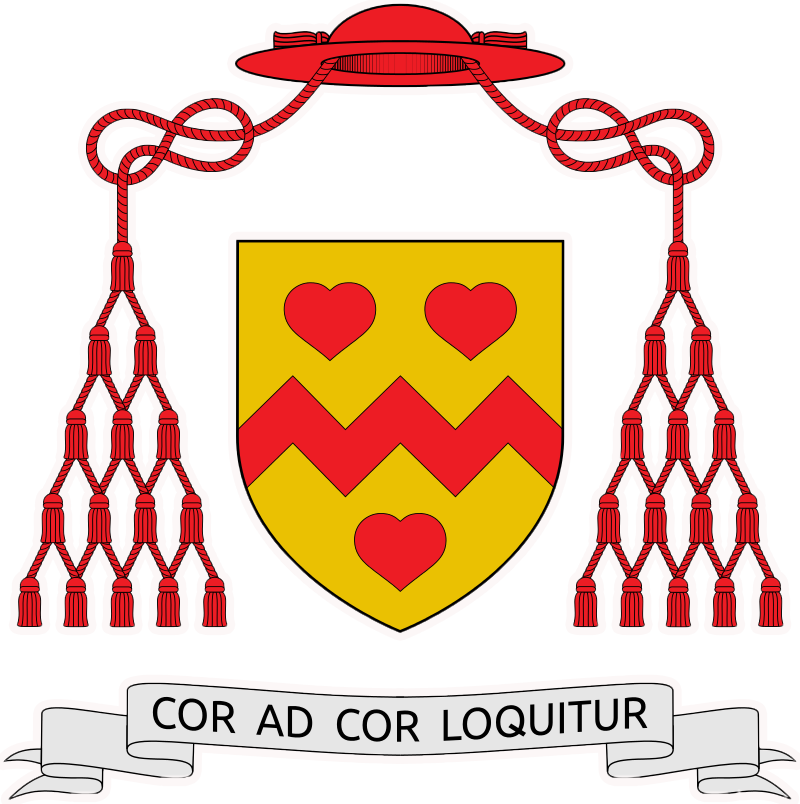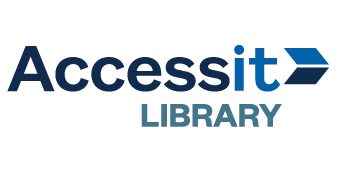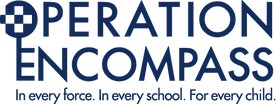Science
Welcome to our Science Section
The Science department at St John Henry Newman School is comprised of six teaching staff and two excellent technicians. Our department varies greatly in terms of experience, Science background (Biology, Chemistry and Physics specialists), length of service at Newman and teaching styles. This allows the pupils to be exposed to a wide variety of lessons taught by Subject specialists, all of which would not be possible without our excellent technical support. We have six Science laboratories and provide, as often as possible, practical experiences within our lessons. In Key Stage 3 the pupils follow the National Curriculum using the Activate resources. At Key Stage 4 the majority of the pupils will complete the Dual Award Science GCSE (AQA Trilogy), with our more able pupils completing the Triple Award receiving a GCSE in Biology, Chemistry and Physics. For Key Stage 5 we offer AQA A Level in Biology, Chemistry and Physics, along with AQA Level 3 in Applied Science. To find out more information regarding the courses and the curriculum offered please do not hesitate to contact me. You can also follow this link to find curriculum information for examination courses.
You can find out more about our curriculum below.
Mrs K Nichol
Head of Science

The Science Team
Mrs K Nichol (Head of Science)
Mrs S Orton (Second in Science)
Mr A Riddick (Teacher)
Mrs F Bell (Teacher)
Miss E Little (Teacher)
Mr C Wilkinson (Teacher)
Mrs E Dent (Principal Specialist Technician)
Mrs C Miller (Science Technician)
Key Stage 3
At St John Henry Newman Catholic School we aim to have a high-quality science education which provides the foundations for understanding the world through biology, chemistry and physics. Science has changed our lives and is vital to the world’s future prosperity that we create the scientists of the future. Our key stage three Curriculum is designed around the National Framework and aims to build up a body of key knowledge and concepts which encourages our pupils to develop a sense of excitement and curiosity about the world around us. We encourage all our pupils to understand how science can be used to explain what is occurring, predict how things will behave, and analyse causes.
The principal focus of science teaching in key stage 3 is to develop a deeper understanding of a range of scientific ideas. Pupils should begin to see the connections between these subject areas and become aware of some of the big ideas underpinning scientific knowledge and understanding. Examples of these big ideas are the links between structure and function in living organisms, the particulate model as the key to understanding the properties and interactions of matter in all its forms, and the resources and means of transfer of energy as key determinants of all of these interactions. They should be encouraged to relate scientific explanations to phenomena in the world around them and start to use modelling and abstract ideas to develop and evaluate explanations.
Importantly our curriculum is designed to help pupils to understand that science is about working objectively and that they can modify explanations to take account of new evidence and ideas by subjecting results to peer review. Pupils will also develop the skills to select the appropriate type of scientific enquiry to undertake to answer their own questions and develop a deeper understanding of factors to be taken into account when collecting, recording and processing data. Finally ensuring that they evaluate their results scientifically will help them question the world around them and help them to transfer their scientific knowledge to everyday life.
The programme of study describes a sequence of knowledge and concepts which help pupils to make progress and develop a secure understanding of each subject in order to progress to the next key stage with the aim of laying the foundations for the GCSE 9-1 Science curriculum. Below is a list of all the content to be studied as detailed in the Oxford University Press - Activate for Key Stage 3 course.
KS3 | Activate Overview | Year 7 | Year 8 | ||
|---|---|---|---|---|---|
Physics | Forces | Speed | Gravity | Contact forces | Pressure |
Electromagnets | Potential difference and resistance | Current | Magnetism | Electromagnets | |
Energy | Energy costs | Energy transfer | Work | Heating & Cooling | |
Waves | Sound | Light | Wave effects | Wave properties | |
Chemistry | Matter | Particle models | Separating mixtures | Elements | Periodic Table |
Reactions | Acids & Alkalis | Metals & Non-Metals | Types of Reactions | Chemical Energy | |
Earth | Earth Structure | Universe | Climate | Earth Resources | |
Biology | Organisms | Movement | Cells | Breathing | Digestion |
Ecosystems | Interdependence | Plant reproduction | Respiration | Photosynthesis | |
Genes | Variation | Human Reproduction | Evolution | Inheritance | |
Key Stage 4
We teach the AQA GSCE Science suite of qualification for all pupils at Key Stage 4. All GCSEs are now linear rather than modular. This means all exams will take place at the end of the course in year 11. There will be no controlled assessment (coursework), practical science skills and investigations will now be assessed by questions in the exams.
GCSEs are now graded 9 – 1. Our combined science GCSEs are ‘double awards’ – this means they will be marked on a 17 point scale. 9-9 is the highest, 1-1 is the lowest, and there are 15 intervening points on the grading scale.
Most pupils will study Combined Science Trilogy, this is a ‘double award’ qualification, which combines biology, chemistry and physics and will be awarded the equivalent of two science GCSEs at the end. Or, for our more able scientists, we offer the chance to study GCSE Biology, GCSE Chemistry and GCSE Physics individually to get three separate GCSEs, the ideal platform for studying Science at A Level and beyond.
Each pupil will sit 6 exams (2 Biology, 2 Chemistry and 2 Physics), regardless of course. The Trilogy exams will be 1hr 15min, out of 70 marks and worth 16.7% of the grade. The separate GCSEs exams will be 1hr 45min, out of 100 marks and worth 50% of the grade. A summary of the topics covers can be seen below.
| Biology | Chemistry | Physics |
|---|---|---|
| Summary of Content | Summary of Content | Summary of Content |
| 1. Cell biology | 1. Atomic structure of the periodic table | 1. Forces |
| 2. Organisation | 2. Bonding, structure and the properties of matter | 2. Energy |
| 3. Infection and response | 3. Quantitative chemisty | 3. Waves |
| 4.Bioenergetics | 4. Chemical changes | 4. Electricity |
| 5. Homeostasis and response | 5. Energy changes | 5. Magnetism and electromagnetism |
| 6. Inheritance and evolution | 6. The rate and extent of chemical change | 6. Particle model of matter |
| 7. Organic chemistry | 7. Atomic structure | |
| 8. Chemical analysis | 8. Space physics | |
| 9. Chemistry of the atmosphere | ||
| 10. Using resources |
Yr12/13 – AQA Level 3 Applied Science
The Level 3 Applied General Certificates in Science is designed as a vocational complement to A-levels or Tech-levels and ideal for learners looking to broaden their knowledge of a particular sector.
This Level 3 qualification offers a practical introduction to science and supports progression to further study or employment. Developed in collaboration with schools, colleges and higher education, it helps learners develop the fundamental scientific knowledge and practical skills valued by universities and employers. The Level 3 Certificate and Extended Certificate in Applied Science offers a variety of assessment types, from examined content to research and portfolio building. This allows learners to apply their knowledge in a practical way. This integrated approach to learning supports a more realistic and relevant qualification for learners.
Learners will:
- practise experimental scientific techniques and explore how they’re applied in industry
- develop their knowledge and understanding of concepts in biology, chemistry and physics
- plan and carry out a scientific investigation of their own choosing
- explore ways in which topical scientific issues are presented in the media
- investigate the role of scientists and the different career pathways open to them
- use the optional unit to decide which scientific pathway to follow.
The Applied Science qualifications feature internally and externally assessed units. Externally assessed units are assessed by a 1 hour 30 minute examination. Internally assessed units are compensatory allowing learners’ achievements to be recognised in grading the unit.
The certificate in Applied Science is made up of three mandatory units. A grade 5 in Science is required to study Level 3 Applied Science.
Key Stage 5 – Biology A Level
The Biology A Level that we offer is the AQA Biology course. The course contains 8 modules;
- Biological molecules
- Cells
- Organisms exchange substances with their environment
- Genetic information, variation and relationships between organisms
- Energy transfers in and between organisms (A Level only)
- Organisms respond to changes in their internal and external environments (A Level only)
- Genetics, populations, evolution and ecosystems(A Level only)
- The control of gene expression (A Level only)
These topics allow pupils to fully broaden their knowledge of traditional Biology (for example Cells and Biological Molecules) along with the new and exciting developments in the subject (for example the control of gene expression). The A Level is assessed through three, two hour long exams at the end of Y13. Paper one and two are a mixture of short and long answer questions (each contributing to 35% of the A Level), paper three consists of structured questions, including practical techniques, critical analysis of practical techniques and a written essay from a choice of two titles (contributing the final 30%). Practical skills are being assessed through recommended practicals completed throughout the duration of the course, pupils then gain either a pass or fail for their practical skills. In order to start the course pupils must have gained at least grade 6 in their GCSE Science exams. Biology is an excellent stepping stone for many Further Education courses for example Medicine, Veterinary Science, Dentistry, Natural Sciences, Midwifery, Radiology, Geography, Sports Science, Microbiology and so many more.
Key Stage 5 – Chemistry A Level
In Chemistry A Level we study the AQA course. The pupils are assessed through a combination of long and short questions, including multiple choice questions. Listed below is the assessment schedule for A Level Chemistry, all assessments are in the summer of Y13.
This Chemistry course is an ideal stepping stone to future study, laying the groundwork for further study in courses such as chemistry, medicine and pharmacy.
To study Chemistry pupils must have gained at least a grade 6 in their Science GCSEs and preferably have studied the triple award.
Key Stage 5 – Physics A Level
In Physics A Level we study the AQA course. The pupils are assessed through a combination of long and short questions, including multiple choice questions. Listed below is the assessment schedule for A Level Physics, all assessments are in the summer of Y13.
This Physics course is an ideal stepping stone to future study, laying the groundwork for further study in courses such as physics, engineering and mathematics for example.
To study Physics pupils must gain at least a grade 6 in their Sciences and Maths, and preferably have studied the triple award at GCSE.














